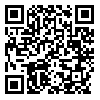1. Andersson, J., & Ubøe, J. (2012). "Some aspects of random utility, extreme value theory and multinomial logit models". Stochastics An International Journal of Probability and Stochastic Processes, 84(2-3), 425-435. [
DOI:10.1080/17442508.2011.619660]
2. Bakens, J., Knockaert, J., & Verhoef, E. T. (2010, May). "Rewarding off-peak railway commuting: A choice experiment". In Proceedings of the World Conference on Transport Research, 2010 Lisbon.
3. Cochran, W. (1977). "Sampling techniques". 3th edition. New York: John Wiley & Sons.
4. Douglas, N. J., Henn, L., & Sloan, K. (2011). "Modelling the ability of fare to spread AM peak passenger loads using rooftops". In 34th Australasian Transport Research Forum.
5. Giuliano, G., & Small, K. A. (1995). "Alternative strategies for coping with traffic congestion". Springer Berlin Heidelberg. pp. 199-225. [
DOI:10.1007/978-3-642-79397-4_9]
6. Henn, L., Douglas, N., & Sloan, K. (2011). "Surveying Sydney rail commuters' willingness to change travel time". In 34th Australasian Transport Research Forum.
7. Jewell, N. P. (2003). "Statistics for epidemiology". CRC Press. 258-259.
8. Jiang, C. S., Deng, Y. F., Hu, C., Ding, H., & Chow, W. K. (2009). "Crowding in platform staircases of a subway station in China during rush hours". Safety science, 47(7), 931-938. [
DOI:10.1016/j.ssci.2008.10.003]
9. Litman, T. (2007). "Evaluating rail transit benefits: A comment". Transport Policy, 14(1), 94-97. [
DOI:10.1016/j.tranpol.2006.09.003]
10. Louviere, J. J., Hensher, D. A., & Swait, J. D. (2000). Stated choice methods: analysis and applications. Cambridge University Press. [
DOI:10.1017/CBO9780511753831]
11. Mahudin, N. D. M., Cox, T., & Griffiths, A. (2012). "Measuring rail passenger crowding: Scale development and psychometric properties". Transportation research part F: traffic psychology and behaviour, 15(1), 38-51. [
DOI:10.1016/j.trf.2011.11.006]
12. Mayeres, I., Ochelen, S., & Proost, S. (1996). "The marginal external costs of urban transport". Transportation Research Part D: Transport and Environment, 1(2), 111-130. [
DOI:10.1016/S1361-9209(96)00006-5]
13. McFadden, D. (1976). "The theory and practice of disaggregate demand forecasting for various modes of urban transportation".
14. Meyer, M. D. (1999). "Demand management as an element of transportation policy: using carrots and sticks to influence travel behavior". Transportation Research Part A: Policy and Practice, 33(7), 575-599. [
DOI:10.1016/S0965-8564(99)00008-7]
15. Patterson, Z., Ewing, G., & Haider, M. (2005). "Gender-based analysis of work trip mode choice of commuters in suburban Montreal, Canada, with stated preference data". Transportation Research Record: Journal of the Transportation Research Board, (1924), 85-93. [
DOI:10.3141/1924-11]
16. Rantzien, V. H. A., & Rude, A. (2014). "Peak-load pricing in public transport: a case study of Stockholm". Journal of Transport Literature, 8(1), 52-94. [
DOI:10.1590/S2238-10312014000100004]
17. Seyedabrishami, H., Mamdoohi, A., & Fowri, H. (2014). "Investigating the role of congestion pricing and transit development in commuter's mode choice behavior; case study of Tehran's even-odd zone". The 13th International conference on traffic and transportation engineering.
18. Sposato, R. G., Röderer, K., & Cervinka, R. (2012). "The influence of control and related variables on commuting stress". Transportation Research Part F: Traffic Psychology and Behaviour, 15(5), 581-587. [
DOI:10.1016/j.trf.2012.05.003]
19. Webb, M., Gaymer, S., & Stuchbery, P. (2010). "Opportunities for managing peak train travel demand: a Melbourne pilot study". In 33rd Australasian Transport Research Forum.
20. Whelan, G., & Johnson, D. (2004). "Modelling the impact of alternative fare structures on train overcrowding". International journal of transport management, 2(1), 51-58. [
DOI:10.1016/j.ijtm.2004.04.004]
21. Yazdanpanah, H., Abedini, M., & Baratian, F. (2011). "The effect of various methods of work time management programs in reducing travel demand during morning peak hour in Tehran". The 11th International conference on traffic and transportation engineering.
22. Zhang, Z., Fujii, H., & Managi, S. (2014). "How does commuting behavior change due to incentives? An empirical study of the Beijing Subway System". Transportation Research Part F: Traffic Psychology and Behaviour, 24, 17-26. [
DOI:10.1016/j.trf.2014.02.009]

 ، ریحانه اژدر*2
، ریحانه اژدر*2 
 ، مجید فشاری1
، مجید فشاری1 
 ، شیما نوری1
، شیما نوری1 








